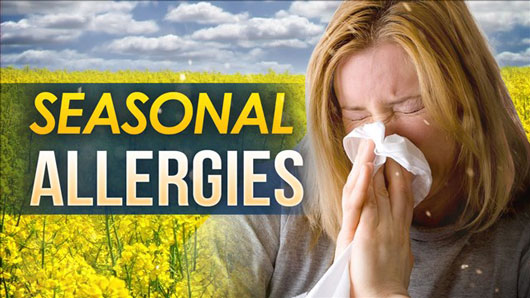
Please choose a body region on the right for you to pin point the problem area of your body.

Shop by Condition

Shop by Brand
 It's about that time: Temperatures rise, trees bloom and your nose starts to run. It itches, too; you keep sneezing or coughing, and your eyes won't stop watering. These are all signs of seasonal allergic rhinitis, also known as hay fever and most commonly caused by tree pollen that iritates your nasal passages.
It's about that time: Temperatures rise, trees bloom and your nose starts to run. It itches, too; you keep sneezing or coughing, and your eyes won't stop watering. These are all signs of seasonal allergic rhinitis, also known as hay fever and most commonly caused by tree pollen that iritates your nasal passages.
Pollen from birch, cedar, cottonwood and pine are particularly big allergy triggers. And if you feel as if your symptoms are getting worse every year, you're not crazy: Research shows pollen counts are slowly rising and expected to double by 2040. Also, if you suffer from migraines and could swear you get more of them when your allergies attack, you might be right again: Recent preliminary research linked nasal allergies and hay fever to an increase in the frequency and severity of these painful headaches.
In the past year, almost 17 million adults were diagnosed with hay fever. Steering clear of allergens is the best way to reduce symptoms, but that's tough with billions of tiny pollen particulates in the air.
You can take steps, however, to minimize exposure; over-the-counter allergy remedies also may help, as well as prescription medications or allergy shots. Talk to a doctor to determine the best treatment plan. Here are some tips.
by "The Doctors"
| Stay Connected! |
Related Articles
Get $10 off your next order when you sign up to receive our email newsletter.*
Simply enter your email address below!
*Minimum order value of $100. Valid email address to qualify.







